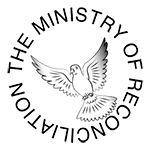Theme
The encounter between Jesus and the Samaritan woman at the well reveals that God is not only concerned with our earthly marital standing but with our spiritual covenant status. Just as Israel was once married to Yahweh, yet fell into unfaithfulness, so individuals and churches today must examine whether they are truly united with Christ the Word—or joined to false doctrines, traditions, or sin. True worshippers are called to leave counterfeit unions and enter into covenant with Christ, the Bridegroom, who offers living water.
1. Jesus and the Samaritan Woman: A Marital Examination
At Jacob’s well in Sychar, Jesus met a Samaritan woman (John 4:7–18). When He asked her for water, she marveled that a Jew would speak to her. But the conversation quickly turned spiritual. Jesus offered her living water, but then pierced her conscience with a personal command: “Go, call thy husband.”
Her reply, “I have no husband,” opened the door for Jesus to expose her reality: five husbands in the past, and now living with a man outside of marriage. In truth, her marital status was not single, married, divorced, nor widowed—but bound in sin. Jesus uncovered this not to condemn but to invite her into true covenant with Himself.
Reflection: If Jesus examined your marital status today, would He find you joined to Him—or entangled in false unions of sin, compromise, or empty religion?
2. Who Were the Samaritans?
To understand this encounter, we must recall the history of the Samaritans (2 Kings 17:29–34). After the Assyrian conquest, Gentiles from Babylon, Cuth, Hamath, and other nations intermarried with Israelites who remained in Samaria. The result was a racially and religiously mixed people: half-Jew, half-Gentile, worshipping Yahweh yet also clinging to their own gods.
They built a rival temple on Mount Gerizim and became despised by the Jews. While Jews avoided them, Jesus deliberately passed through Samaria, showing that the gospel is for all who will receive it. The Samaritan woman symbolized this mixture: outward religion but inward corruption.
Reflection: Have you mixed the worship of God with the idols of culture, tradition, or false teaching?
3. Living Water vs. Broken Cisterns
Jesus contrasted Jacob’s well with the living water He alone could give: “Whosoever drinketh of this water shall thirst again, but whosoever drinketh of the water that I shall give… shall never thirst” (John 4:13–14).
The woman asked for this water but misunderstood. Like many, she longed for convenience, not transformation. Yet once her sin was exposed, she realized she needed more than tradition or ceremony—she needed the Messiah.
She left her water pot, symbolizing old ways of satisfaction, and ran to testify. She who once lived in shame became a bold witness.
Reflection: Have you left your old water pot—your dependence on tradition, sin, or self—to receive the living water of Christ?
4. Spiritual Adultery: Israel’s Example
The woman’s story mirrors Israel’s. Yahweh had married Israel at Sinai, entering covenant with her (Ezekiel 16:8; Deut. 6:13–15). Yet Israel committed spiritual adultery by serving other gods. Though separated for a time (Isa. 50:1), she was eventually given a certificate of divorce (Jer. 3:8). Still, God promised redemption.
The church, too, is in danger of repeating Israel’s error. Paul warned: “I have espoused you to one husband… but I fear… your minds should be corrupted” (2 Cor. 11:2–3). False doctrines, traditions, and compromises are spiritual lovers that defile the Bride’s purity.
Reflection: Are you married to Christ the Word, or have you taken other lovers—denominational systems, cultural traditions, or worldly compromises?
5. The Word as the True Husband
Christ is revealed as the Bridegroom who sanctifies His bride through the washing of water by the Word (Eph. 5:25–27). To be married to Him is to be one with His Word, not merely attached to a church system.
Some Christians, like the Samaritan woman, have had “five husbands”—false doctrines, worldly compromises, or traditions of men. Others cohabit with religion that is not true marriage to Christ. But the Spirit still says, “Come!” (Rev. 22:17). The Bride must make herself ready (Rev. 19:7).
Reflection: Have you entered into true union with Christ the Word, or are you merely cohabiting with religion without covenant?
6. A Call to Self-Examination
Examining our marital status is not about outward denomination or labels—Baptist, Methodist, Pentecostal, Catholic—but about whether we are espoused to Christ and indwelt by His Spirit.
Are you baptized according to the Word, not just tradition?
Do you partake of the Lord’s Supper as He commanded, or as men altered it?
Do you honor the whole counsel of Scripture (2 Tim. 3:16), or pick and choose?
Do you aim to please men or God (Rom. 15:3)?
The Samaritan woman’s transformation shows us that once exposed by the Word, we can be cleansed, filled, and sent forth as witnesses.
Reflection: Have you allowed the Spirit and the Word to reveal your true status?
7. The Bride of the Lamb
Human marriage is a type of the greater marriage between Christ and His Church. The call today is for the Bride to be ready: pure, faithful, and adorned with righteousness.
“Let us be glad and rejoice, and give honour to him: for the marriage of the Lamb is come, and his wife hath made herself ready” (Rev. 19:7).
The Samaritan woman moved from broken unions to true marriage with Christ the Word. Likewise, the Church must move from tradition, compromise, and sin to covenantal oneness with Christ.
Conclusion: Shalom!
Jesus is still examining marital status today. He does it not to condemn, but to invite us into a marriage covenant with Himself—the Word made flesh, the Lamb who takes away the sin of the world. Let us lay aside false husbands, broken cisterns, and traditions of men, and be joined to Christ alone.
Examine your marital status—for the Spirit and the Bride say, Come!


